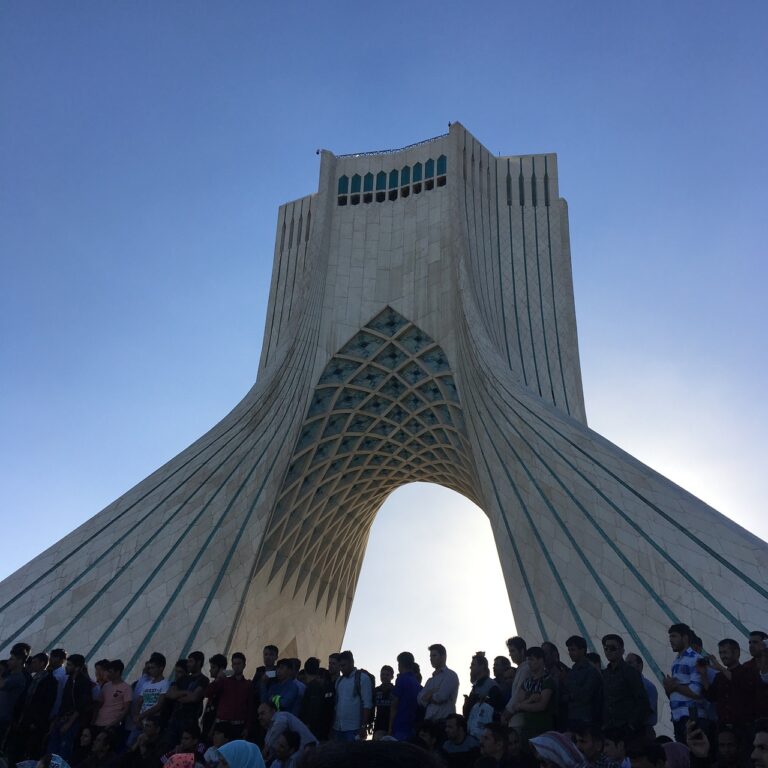
File photo of protests in Hong Kong
Washington/Hong Kong: As new sanctions imposed today by the United States target Chinese officials and entities in Hong Kong, the city’s future as a financial and business hub is facing growing uncertainty. The U.S. sanctions, announced on March 31, 2025, specifically target individuals and organizations believed to be complicit in undermining Hong Kong’s autonomy under the National Security Law (NSL). Moreover, in a report to Congress on conditions in Hong Kong of interest to the United States submitted today, the U.S. Department of State claimed Beijing was “directly” threatening U.S. interests and was inconsistent with its obligation to allow Hong Kong to enjoy a high degree of autonomy.
The U.S. measures, alongside mounting diplomatic tensions and shifting economic conditions, present critical challenges to Hong Kong’s status on the global stage.
The latest round of U.S. sanctions, aimed at Chinese officials responsible for enforcing Hong Kong’s increasingly restrictive policies, marks a new chapter in the city’s strained relations with Western powers. Among those sanctioned are Xia Baolong, the Director of the Hong Kong and Macau Affairs Office (HKMAO), and Zhang Xiaoming, the Deputy Director of HKMAO. The U.S. government also imposed sanctions on John Lee, the Chief Executive of Hong Kong, who has been at the forefront of implementing policies that critics argue undermine the city’s political freedoms. These sanctions target individuals and companies connected to the Hong Kong government’s handling of political dissent and press freedom. By restricting access to the U.S. financial system, the sanctions are a direct response to concerns over the erosion of Hong Kong’s autonomy since the imposition of the National Security Law in 2020.
The move is likely to deepen the isolation of Hong Kong from key Western markets, making it more difficult for international businesses to maintain their operations in the city. The financial sector, which has long been the backbone of Hong Kong’s economy, faces further disruption as tensions with the U.S. escalate. Hong Kong-based companies with significant dealings in the U.S. or with American clients will now face increased regulatory hurdles, further eroding confidence in the city as a stable business environment.
Beijing, in turn, has strongly condemned the sanctions, framing them as an infringement on Hong Kong’s sovereignty. Chinese officials argue that Hong Kong’s integration into China’s legal and political framework is a necessary step for maintaining national security and stability.
However, critics contend that these sanctions highlight the growing global distrust in Hong Kong’s political trajectory, which could undermine its long-term economic viability.
British concerns have also escalated. The United Kingdom government, which has been vocal about Hong Kong’s autonomy since the Sino-British Joint Declaration of 1984, has condemned the increasing repression. British officials have warned of further diplomatic actions, including potential sanctions and a review of Hong Kong’s special trade status.
A City on Edge
The law and order situation in Hong Kong has undergone a significant transformation. Authorities have clamped down on protests, tightened internet surveillance, and increased police scrutiny. The once-thriving civil society now faces arrests, asset freezes, and closures of organizations critical of Beijing.
The Exodus: A Growing Concern
As political tensions continue to rise, expatriates in Hong Kong have increasingly reconsidered their positions. Over 20,000 expatriates have left Hong Kong in the past year, a significant increase compared to previous years. This growing trend, attributed to the National Security Law and rising political risks, signals a worrying shift for the city’s economy. Historically, Hong Kong has relied on a vibrant expatriate community to sustain its business ecosystem, particularly in sectors such as finance, law, and media. However, as concerns over political freedoms and job security grow, many expatriates are choosing to relocate to other parts of Asia, with Singapore emerging as the most favoured destination.
These departures of expatriates, coupled with increasing numbers of companies shifting their operations out of Hong Kong, are putting significant pressure on the city’s economic future. According to recent reports, multinational corporations are scaling back their operations in the city. In 2025, key firms such as JP Morgan, Ernst & Young, and L’Oréal have either reduced their operations or moved their regional headquarters elsewhere.The political turmoil has led to an exodus of businesses.
Since 2023, more than 400 multinational companies have relocated from Hong Kong, driven by regulatory uncertainties and concerns over judicial independence.
Since China assumed control, over 1,500 businesses have exited the city, marking a significant shift in Hong Kong’s economic standing as a financial hub.
A growing number of firms, especially those with strong ties to the U.S. and European markets, are relocating to more politically stable environments such as Singapore and Tokyo. Notable companies that have moved operations include HSBC, which announced a shift of some senior roles to Singapore; Standard Chartered, which also scaled down its operations in Hong Kong; and Deutsche Bank, which is now exploring expansion in other regional hubs. The shift is particularly noticeable in the finance, legal, and media sectors, which have historically been vital to Hong Kong’s competitive edge as an international business hub.
While some expatriates have left due to the erosion of political freedoms, others cite the city’s increasing cost of living, housing prices, and lack of opportunities in key sectors.
China’s Counterarguments
Beijing has repeatedly dismissed allegations of repression, maintaining that the National Security Law is necessary to ensure stability and curb foreign interference. The Chinese government has criticized Western sanctions as unjustified and an attempt to undermine China’s sovereignty. Officials have also rejected claims of a business exodus, arguing that Hong Kong remains an attractive financial hub with growing investments from mainland China and other Asian economies.
Beijing insists that the expatriate departures trend is exaggerated. Chinese authorities have stated that Hong Kong continues to attract skilled foreign professionals, particularly in finance and technology. They attribute any outflows to global economic shifts rather than political concerns.
A Shifting Economic Landscape: Political Pressures and Regional Competition
Hong Kong’s economic landscape has been in flux since the implementation of the National Security Law, which has fundamentally altered the business climate. While Beijing continues to assert that Hong Kong remains an attractive destination for global talent and investment, the reality on the ground tells a different story. Many multinational corporations are recalibrating their presence in the city, driven by political risks and uncertainties surrounding its autonomy.
Hong Kong’s role as a gateway to China remains critical to its economic success, but increasing integration with Beijing’s policies has led some businesses to question whether the city can maintain its status as a neutral platform for global trade. Cities like Singapore, which offer political stability and favorable business conditions, are increasingly seen as attractive alternatives for companies seeking to hedge their risks. The latest sanctions, coupled with ongoing diplomatic tensions, add another layer of uncertainty to Hong Kong’s future as a business hub.
In the wake of these developments, Hong Kong’s property market—once a cornerstone of its economic growth—is showing signs of strain. Country Garden, a major player in the real estate sector, reported a 37% decline in sales for 2024, exacerbating concerns about the broader economic outlook. The city’s real estate sector, which has long been a key driver of its economy, now faces significant headwinds.
Press Freedom Under Siege
Another critical factor impacting Hong Kong’s global standing is the erosion of press freedom. Since the implementation of the National Security Law, several independent media outlets have been forced to shut down, citing legal pressures and financial difficulties. In just the last three months, three major newspapers have ceased operations, further underscoring the challenges faced by Hong Kong’s media sector.
Chinese authorities have defended these closures, arguing that the media outlets in question violated national security laws by engaging in subversive activities. Officials insist that press freedom remains intact as long as media outlets operate within the confines of the law. However, critics argue that the crackdown on media freedom is a clear attempt to suppress dissent and limit the flow of independent information, a move that is likely to deter foreign businesses and expatriates from remaining in Hong Kong.
Regional Competition: The Rise of Singapore
Hong Kong is facing increasing competition from neighbouring cities, particularly Singapore, which has capitalized on its political stability and business-friendly environment to attract global investment. Singapore’s growing role in the fintech and technology sectors has positioned it as an alternative to Hong Kong, which has seen its appeal diminish in recent years due to its increasing alignment with Beijing’s policies.
The latest U.S. sanctions are likely to exacerbate this trend as businesses reevaluate the risks of operating in Hong Kong amid growing geopolitical tensions. Singapore, with its strong regulatory frameworks, lack of political unrest, and growing investment in technology and financial services, is well-positioned to attract businesses and professionals looking for a more stable environment.
Hong Kong’s Financial Sector: Resilience Amid Challenges
Despite the political and economic challenges, Hong Kong’s financial sector remains one of the world’s most sophisticated. The Hong Kong Stock Exchange (HKEX) continues to be a critical platform for global capital flows, particularly for Chinese companies seeking international exposure. However, analysts say the city’s financial institutions must now adapt to the changing global landscape, particularly in light of the rise of fintech and digital currencies.
Hong Kong’s role as a regional financial centre is still significant, but its future will depend on its ability to maintain competitiveness in a rapidly evolving financial ecosystem. As businesses look to mitigate their exposure to Hong Kong’s increasing political risks, the financial sector will need to navigate both the pressures from Beijing and the demands of global investors looking for stability.
Diplomatic Strains and the Path Ahead
The imposition of U.S. sanctions is only the latest sign of the growing diplomatic rift between the West and China over Hong Kong’s political trajectory. Sanctions are part of a broader strategy by the U.S. to exert pressure on China over human rights concerns and the erosion of freedoms in Hong Kong. As these diplomatic tensions escalate, businesses are increasingly wary of their exposure to the city’s political and economic risks.
The U.S. sanctions, along with tightening global scrutiny, are likely to further isolate Hong Kong from Western markets. This is compounded by a broader shift in the global economic order, where companies are looking for more stable and politically predictable environments in which to operate. Hong Kong’s ability to retain its relevance as a financial and trade hub will depend on its response to these geopolitical pressures and its ability to adapt to the changing global business environment.
The Future of Hong Kong
With tightening U.S. sanctions, growing diplomatic tensions, and the increasing exodus of businesses and expatriates, Hong Kong faces a difficult road ahead. Beijing remains resolute in its governance approach, but international pressure is unlikely to subside. The city’s future as a global business hub depends on whether it can maintain its economic relevance while addressing global concerns over its autonomy, political freedoms, and press freedoms.
The next few months will be critical in determining whether Hong Kong can continue to serve as an international financial center or whether its increasing political alignment with Beijing will signal the end of an era for this once-unstoppable economic powerhouse.
– global bihari bureau





